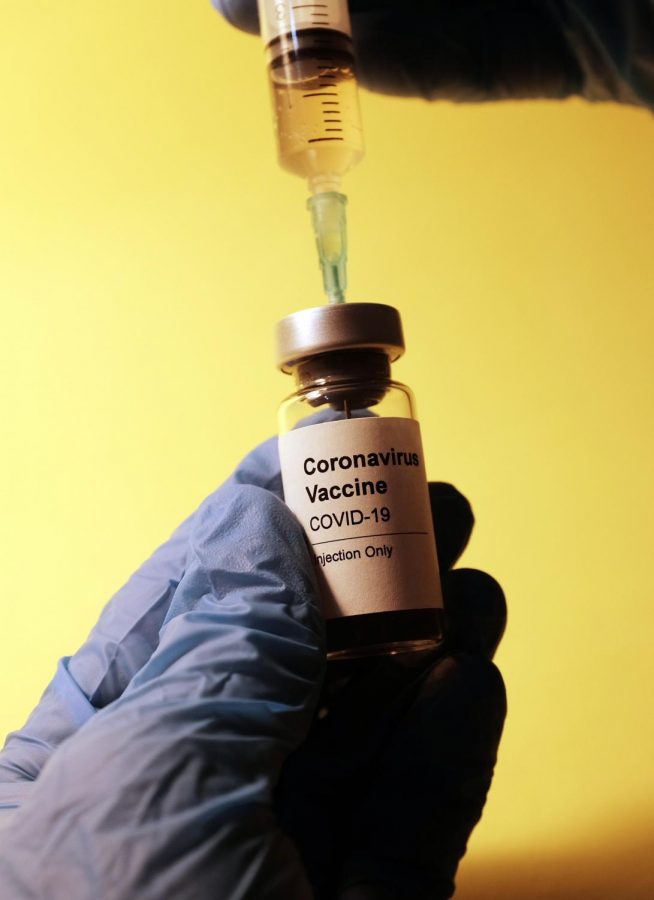The Delta Variant and CSUEB’s Upcoming Fall Semester
July 7, 2021
A Look at the Delta Variant with CSUEB’s Chair of the Department of Public Health, Dr. Arnab Mukherjea.
California officially reopened, which means no more capacity limitations and masks are no longer a requirement in most situations for fully vaccinated people, on June 15.
The CDC officially declared a state of quarantine in March 2020 due to Covid-19. Almost a year and a half later, many people were relieved for California to finally reopen after so long. A Los Angeles Times article reported Californians celebrating their state’s reopening with one person stating, “I feel liberated,” amid the lifted restrictions.
Most people can agree that they would like to go back to a sense of pre-pandemic normalcy. But at what cost?
While the number of Covid deaths is steadily decreasing in California, reopening the state prematurely carries the risk of Covid cases/infections increasing again.
The risk of another spike in Covid cases and deaths is even more harrowing, considering the director of the National Institute of Allergy and Infectious Diseases, Dr. Anthony Fauci, called the “greatest threat’ in the world’s efforts to contain COVID-19:” The Delta variant.
The Delta variant is a mutation of the original Covid-19 virus. Although it is thought to be much more contagious than the original strain, it is still unclear if the Delta variant causes more severe disease, according to Dr. Arnab Mukherjea, CSUEB’s Department of Public Health Chair.
In regards to the effectiveness of vaccines against the Delta variant, Mukherjea emphasized how crucial it is to recognize that “Currently, most cases, hospitalizations, and deaths are occurring overwhelmingly about the unvaccinated. Vaccination is the single most important public health intervention to end this pandemic, both in the U.S. and globally.”
Mukherjea also highlighted the importance of public health systems, acknowledging the “Inequalities in vaccine uptake among/racial/ethnic minorities, those who are socioeconomically vulnerable, and individuals who have higher risks of exposure based on profession or physical environment.”
This is especially critical to recognize as a campus and community like CSUEB, whose demographic is among the most racially diverse compared to other universities across the nation.
CSUEB’s courses and campus life have been almost entirely virtual since the pandemic-related lockdowns began. This upcoming fall semester, CSUEB is offering the option to take in-person classes along with a handful of on-campus resources that will reopen.
Mukherjea voiced his support for CSUEB’s initiatives towards transitioning back to in-person classes: “Being engaged in university life is a key determinant of social mobility which allows for tremendous mental and physical health benefits across the life course,” Mukherjea said, noting the inequities to accessibility and education caused by entirely remote education.
Mukherjea emphasized the benefits of returning to in-person classes far outweigh the risks. “It is imperative that students have some critical in-person time on campus, given the loss of such interactions for over a year.”
When asked about the risk, he added, “To date, there has not been an outbreak on our campus, despite many staff being present full time in person and select courses being held in the classroom. The low test positivity rate in the Bay Area, coupled with a high level of vaccination in the region, make coming back to campus in some form a prudent action.”
Considering these low levels of risks, Mukherjea experienced what the benefits of returning to in-person learning are. Through meeting with students on campus, Mukherjea noticed the social and interpersonal benefits of meaningful relationships that were beneficial to personal and professional advising.
In order to ensure the safety of CSUEB and the surrounding community this fall semester, there will be safety guidelines put in place. Besides personal hygiene, such as washing your hands, Mukherjea shared which safety protocols would be most beneficial, including mask-wearing and regular testing as a requirement for those not getting the Covid-19 vaccine.
Mukherjea underlined CSUEB’s responsibility of providing the necessary resources to ensure a safe and smooth transition back to on-campus this fall semester. He hopes for access to vaccines on campus to reduce costs and time barriers along with mental health resources.
Despite reports of the Delta variant being more dangerous than the original Covid-19 strain, many professionals, Mukherjea included, having a lot of hope for the future and a post-pandemic world.
To reiterate, the number of Covid cases and deaths is on the decline for Calif., while the need to go back to ‘pre-pandemic’ society seems to be increasing.
Mukherjea expressed his appreciation for how California decided to transition: “I believe the state is following the science carefully in its health policies regarding lifting of certain restrictions while understanding the need for humans to slowly and safely return to a sense of normalcy resembling a pre-pandemic world.”
Overall, the most important things that citizens can do to ensure everyone’s safety in the meantime is to get vaccinated (or get tested for Covid-19 if vaccination is not possible), practice personal hygiene, and keep an eye out for any new information from the CDC and local authorities.
Practicing these policies will ensure not only the opportunity to go back to on-campus classes in the fall but hopefully return to a new normal life sometime in the near future.
For more information about the Delta variant and the effectiveness of vaccines, click here.







